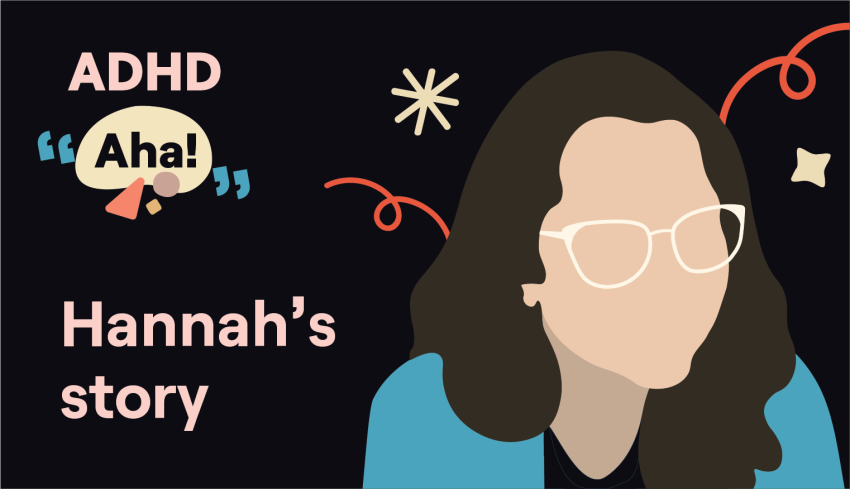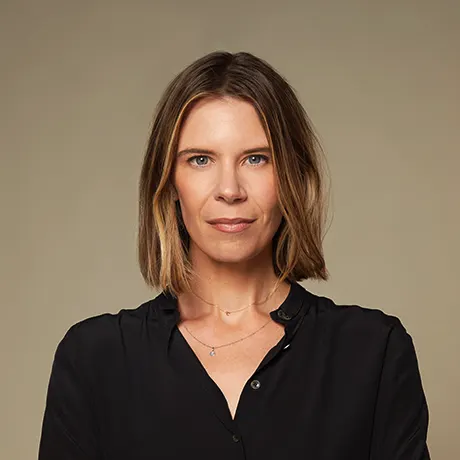Stay in the know
All our latest podcasts delivered right to your inbox.
ADHD and post-traumatic stress disorder (PTSD) symptoms can look similar in many ways. And together, they can morph into what guest Hannah Harris Green calls “a trauma ball of blame that’s hard to untangle.”
Hannah is a podcast producer, journalist, and writer who works in public radio. She talked about ADHD and PTSD on KCRW’s Bodies podcast, which she produced. (It’s an incredible episode. Link below.) She shares her ADHD diagnosis story here and talks about her Venn diagram of ADHD and PTSD behaviors (insomnia, trouble focusing, and more). Also in this episode: a “fall from grace” when school got harder. Plus, adding ADHD to an already layered identity.
Related resources
Episode transcript
Hannah: I came across a Venn diagram where one bubble said PTSD, one bubble said ADHD, and then in the middle there were all of these overlapping symptoms. Seeing that diagram and those symptoms laid out like that was really kind of a gut punch for me.
Laura: From the Understood Podcast Network. This is "ADHD Aha!," a podcast where people share the moment when it finally clicked that they or someone they know has ADHD. My name is Laura Key. I'm the editorial director here at Understood. And as someone who's had my own ADHD "aha" moment, I'll be your host.
I'm here today with Hannah Harris Green. Hannah is a podcast producer, a journalist, and a writer who works in public radio. She works full time at Marketplace, and has produced seasons of KCRW's "Bodies" podcast, a feminist documentary series that explores how women and marginalized genders navigate health-related challenges.
Hannah shared her story on the "Bodies" podcast. And I have to say, Hannah, it's one of the most candid and moving depictions of ADHD that I've ever heard, and I'm thrilled to have you here today. So, thank you for being here.
Hannah: Yeah, thank you so much. I'm so glad to hear that you had that response to the episode.
Laura: I really did. I'm going to include a link in the show notes for all of our listeners because I really want them to listen to that episode as well. Your depictions of not just ADHD, but also that Venn diagram of where PTSD and ADHD meet, was very — not just moving and real — but also just very eye-opening. I learned a lot from that episode. We're going to talk about some of that today.
But just to get started, I wanted to ask you about what I think I could call — and you tell me if you agree — your "aha" moments. Prior to doing this episode on the show that you produced, when we spoke last and having listened to the episode that you're featured on, I know that you had a lot of moments with your partner Matthew, and also with your therapist. I believe you had some "aha" moments. Where do you want to start?
Hannah: I feel like to talk about the "aha" moment, it makes sense to talk about the denial and skepticism that came before it. So, when Matthew suggested to me that I might have ADHD, it wasn't the first time someone I was dating had said that. Even a few years ago I had an ex who said that to me, but she was trying to use that against me. Basically, she was saying it in a way to dismiss me.
So, that made it very easy not to listen to her. And in the years after that, I was noticing that a lot of people who I was friends with, a lot of people who I was attracted to, dating, also said they had ADHD. And I thought, "Wow! how can all these people have this thing seems fake." Now, of course, I realized that if you have ADHD, you're just kind of drawn to other people with it. It makes sense.
But every time someone said that to me, I thought, "Well, it's true. I lose stuff. I forget stuff. I have some focus issues." But I was really good in school when I first started school, and I focus really well on a lot of things. So, I can't have ADHD because ADHD means you can't focus and you're bad at school. That was kind of my thinking and that's how I think I sort of kept out the realization.
But conversations with Matthew made me realize that I should at least talk to my therapist about it. And because Matthew has ADHD as well, and the way they approached it was a little more understanding. And, you know, coming from their own experience and things we had in common.
So, I brought it up in therapy one day and she started asking me if I had started out as a good student. And then there was sort of a moment where I had a fall from grace, and my parents and teachers thought that I had just stopped trying because I had gotten good grades and I couldn't anymore.
Laura: "A fall from grace." That was something that you said in the "Bodies" episode that really stuck with me as well. I'd never heard it described like that, and it rings very true. Can you talk to me more about what you think your therapist meant by that?
Hannah: Those words really stuck in my head as well. I don't think I would have articulated it to myself that way either, but they really described how I felt. When I started high school, basically, somewhere in there — and for most of the time I had been in school — I was just beloved by my teachers, because I picked things up quickly and was enthusiastic and it never really felt like a challenge to me.
And I went to a magnet school for high school, and the classes were much more difficult. But it was also a shift where we weren't spending time outside anymore. We weren't spending time on our feet in class anymore. It was a lot more just sitting still and having to listen to someone and take their words in. And I really struggled, and I didn't know why. And I think a lot of the adults in my life thought that I just wasn't trying, didn't care anymore. They found it disappointing.
Laura: Did you feel disappointed in yourself as well? or was it more of an outward-in kind of thing?
Hannah: I think it was more complicated than that. I think in some ways I felt disappointed in myself. And I also just wanted to get good grades again to make my life easier so everyone would leave me alone.
I think there was also a part of me that always thought, "It doesn't matter that much if I can't get good grades in every single class. Like all the adults think that this is important, but I think there are other things that matter more." So, I think it was a battle within myself too. Whether I should follow my own gut feeling about what matters or listen to the adults and work really hard to fix myself, sort of.
Laura: How did you feel about the idea of possibly having ADHD and having that label?
Hannah: It's funny, I struggle to remember how I felt about it even recently-ish, like before the diagnosis, because my concept of ADHD was so different. But I do remember thinking that I don't want to have to come out again. I am queer. I'm bisexual. You know, you don't come out just once. You end up having to come out a bunch of different times to different people.
And I remember thinking like, "I don't necessarily want to add another layer on this. And also, I don't want another reason for people to question my identity." Because like, I'm queer, like I am mixed race, I have Filipino and Jewish heritage. And if you're like a thing that people are not familiar with or that is more complex than just "I'm this one thing," people have a lot of opinions about it and a lot of judgment about it.
So, I kind of was hesitant for that reason. I didn't want to have to defend another label to people. So yeah, that was all in there. But I think I did want some kind of explanation, though, for the things that have been going on. And I thought that having that label might also be comforting if it could help explain — both to me and to other people who I know — why I am the way that I am.
Laura: And when you were officially diagnosed, did it end up being comforting?
Hannah: When I first got those results, I think he implied that it was pretty severe. And my first reaction to that was sadness, for sure. Even though I already knew it and I wasn't surprised, there was kind of a finality that made me sad. You know, it made me think, "Wow, this really is never going to go back in the other direction. These things will always be a struggle for me."
Laura: Was there anything in those results that pointed to what you have described as some of those overlap areas with PTSD and ADHD? And maybe you can maybe back up a little bit to talk in general about the fact that you're carrying both of these diagnoses.
Hannah: That's interesting, because so, first they gave me this long ADHD evaluation — sort of the series of tests and questions — and then at the end, I'm pretty sure I filled out a different questionnaire, which I think was meant to determine if some of my focus issues were related to PTSD or anxiety or depression or other things. So, I asked him, "It seems like I was also being evaluated for PTSD stuff, you know, What do you think?" What he said was, "Yes, it seems like you still have some PTSD, but it's not as severe as it used to be."
Laura: So, this was in your ADHD evaluation. Did you know you were also being reevaluated for PTSD?
Hannah: No, I wasn't surprised that they gave me those questionnaires because, I think as part of the process of making that "Bodies" episode, I had learned that a good, thorough ADHD evaluation will include questions evaluating you for PTSD, anxiety, and depression. Because it is possible that those things can create ADHD-like symptoms.
Laura: Would you actually mind talking about that? That Venn diagram of symptoms? I'm just curious, like, what have you experienced that you're like, "Is this an ADHD symptom, or is this PTSD symptom? or it's hard to untangle them?"
Hannah: I think it was during, again, my research for this podcast episode that I came across a Venn diagram where one bubble said PTSD, one bubble said ADHD, and then in the middle there were all of these overlapping symptoms. I clicked on it, and it was part of a Twitter thread, I think? And somebody had replied to it with the "This is Fine" Dog-on-Fire meme. And I was like, "Yeah, this feels about right," because seeing that diagram and those symptoms laid out like that was really kind of a gut punch for me.
I think we all have moments of feeling life has really dealt us a tough hand. And just seeing like, all of these different symptoms that I was dealing with simultaneously from these two different conditions that interact with one another, I was like, "Man, yeah, that these are symptoms that I deal with all the time."
Laura: Right? And they kind of like team up against you, right? All these different types of symptoms. I know you've mentioned, for instance, struggle with sleep. Is that...
Hannah: Totally. Yeah. So, insomnia is a symptom of both ADHD and PTSD. Insomnia isn't part of like the official DSM definition of ADHD, but a lot of us have it.
Laura: Right, and we know that if you are hyperactive, it can make it difficult to fall asleep. Or like your brain won't stop moving, etcetera. Yeah, we actually have a great episode on ADHD and sleep if folks want to listen. But there's definitely a connection, you know, whether it's listed as an official symptom or not.
Hannah: Right. So, my whole life I have struggled to sleep. So, first you have trouble sleeping because your mind is so active. And then when you add paranoia, like flashback nightmares into the mix, you're really, really going to struggle to sleep. Even just difficulty focusing, is both an ADHD symptom and a PTSD symptom.
And I think what really got me about that, is realizing that I couldn't focus enough to even really try to understand myself for years surrounding these various traumas. So, how was I ever going to figure out I had ADHD?
Laura: Right, to have it be kind of a work exercise that adds a certain amount of healthy pressure, can help folks with ADHD to actually move forward on some of this.
Hannah: Yeah, absolutely. But I think another reason — by the time I was making the podcast episode — I had enough stability in my life that I think I would have at least gotten the diagnosis either way. Partly because I had the time and the money and the ability to focus. But, sometimes I think I really needed this information even more, back when I was really in the thick of dealing with PTSD, because I just felt so down on myself about basically everything. But I didn't have the resources at that time or the ability to focus.
Laura: Which information specifically?
Hannah: Honestly, it's kind of a general "It's not your fault" type of information. I think that sexual trauma is really easy to turn all the anger about that back towards yourself. And even if you're trying really hard not to feel ashamed or feel low self-worth, it's really hard with PTSD. Like, you know, there's all kinds of things you can find to blame yourself for. And it all kind of becomes wrapped up into this big trauma ball of blame that's really hard to untangle.
So, I think just knowing that some of the difficulties I have with focus and executive function were beyond my control, even before all these things happened to me, would have really helped me. And just anything that could have cut down the amount of shame I felt, in general, would have helped me a lot. And it's helping me now. Like it's not entirely negative, but I think about the irony of that, when I most needed care, I didn't have the resources.
Laura: I imagine that the negative self-beliefs that come with PTSD, and then that combined with ADHD. People with ADHD, we experience often repeated failures that just can, to your point, like you have this kind of ball of bad feeling for yourself. What was it that started to get you out of that specifically?
Hannah: Just time passing helps. Going to therapy helps. Talking about it helps. One thing that was really important for me was to start to think about my childhood again, while talking about ADHD. Because I think one of the reasons I didn't realize it sooner, is that I basically graduated college and immediately started experiencing traumas that sort of, you know — this can happen with trauma — where your worldview completely shifts and everything feels different. Like it feels like you're living in a different world.
And because there was such a harsh separation between childhood and adulthood, for me, it just never occurred to me to look back at my past, to try to understand my own mind. And once I started looking back at my past, it was really healing. Partly because it made me realize that not everything difficult in my life was because of the trauma. Like, there was a reason for it. And that reason was ADHD, which has positive aspects as well as negative ones. You know, it's very incremental.
For me, coming out of the closet was one thing that really started to turn things around for me, because — not that it's necessarily directly connected to the traumas I experienced — but there's shame that comes with being queer, and closeted, too. And coming out is sort of a way to directly face the shame and say, "I'm not going to let this control how I live or what I share about myself." So, I think making that step of coming out and saying, "I'm going to take control of my shame rather than letting it control me," helped me with the shame of the traumas I had been through as well.
So, I think that was a really important step. And then, you know, I had a lot of times that I could have given up on journalism because it's a very competitive and difficult field. But I didn't give up on that. And the more professional validation I got, the more financial stability I got. That also made things easier and made it easier to believe in myself.
Laura: How do your experiences inform your work as a journalist today?
Hannah: I do tend to gravitate towards folks who have been through something. You know, who are — I'm like being so tiptoey about it right now, but it almost sounds cliche like, you know — sort of more of the misfit perspective. I have more trust for that. And I think it is easy for me to listen and connect with people because I might share more of their experience that they realize. And I know what questions to ask because of that.
Laura: I mean, the word that's going through my mind is empathy.
Hannah: Yeah! No, it helps you listen with empathy and it helps you put yourself in their shoes and know what to ask.
Laura: What led you to share your story on a show that you produce? That's wild, right? It's a wild feeling. It must be.
Hannah: It totally is. I think a lot about what it would have been like to — so I was producing that episode at the same time as I was going through the process of realizing I have ADHD and getting diagnosed — so, I wonder what it would have been like had I just gotten the diagnosis and had it be separate from work. But basically, we started production of season four of "Bodies" around the same time I was realizing that I might have ADHD and was talking with my therapist and my partner about it.
So, I was having these conversations and I work on a health podcast. So, I wanted to learn more about ADHD and explore it. And I started pitching all of these ideas that were not about me. Episodes that focus on stimulant medication, for example, or just talking about neurodivergence in a more general way, where I would mostly interview other people. And as I kept pitching these ideas, the host of the show said, "You know what's most interesting to me is your own emotional journey right now."
And I was a little nervous about the idea of doing work about myself because I hadn't really before, not for an audience and not in that way. But I also thought, part of me has wanted to talk about my own story for a really long time. And I think part of the reason that I hadn't, is ADHD-related and that I kind of need the structure of work to get me to finish anything. So I thought, this is a way where I could do something I've really wanted to do for a while and there will be structure and people making me actually finish. So, let's try it.
Laura: And if I remember correctly, last time we chatted, you mentioned that you were evaluated for ADHD the same day that you recorded that episode. Is that true?
Hannah: Yeah. Yes. No, no, no. Not even the same day I recorded the episode. The same day the episode actually was published.
Laura: Oh, that's right. That must have been a very emotional day.
Hannah: Yeah, it was a very emotional day. I wouldn't say in a good way. It was a really tough day for me to realize that, you know, like it was exposing in the sense that I was sitting in a room with a dude taking tests and answering questions for 4 hours. And I wasn't. I can back up in a minute and explain why I was being evaluated while also actually kind of knowing I had ADHD already and being medicated for it.
But I was on meds already and they were like, don't take meds for a couple of days beforehand. So, I was in this room off my meds with this strange guy giving me these tests and asking me questions. And I remember him saying, "You're really fidgety. Is that because you're off your meds?" I was like, "What do you think? Of course!"
Laura: Yeah. Can we get this over with? When will this torture end? Right.
Hannah: So, sorry that was a tangent. But I was like, "Yes, I would probably be fidgety even on my meds in this situation." But yes, that is why.
Laura: We're going to get to how you understood your ADHD so well, even prior to your evaluation. I guess — just for listeners who may be wondering — how did you have access to medication prior to getting a diagnosis?
Hannah: So, I did technically have a diagnosis. Basically, way back in the year before, I had had conversations with my therapist and my partner that made me realize it was quite likely that I had ADHD. And my thinking at the time was, "Seems like I have this. So, let's find out if the medication helps me," which I was able to do through those telehealth apps.
I wouldn't necessarily trust the evaluation I got on that app, but you know, it was a utilitarian way to try the meds, and I realized they did help. And, because part of my job was doing all this research about ADHD, I felt pretty confident that I had it. And the other element of that is that, I was freelance-only at the time, so my health insurance did not cover an ADHD evaluation. It would have cost $1,700 out of pocket.
Laura: I need to say out loud for people who are listening that we do recommend at Understood that folks get a full evaluation before moving into ADHD medication. But you have a very unique, unique story.
Hannah: Totally! You know, totally. And the other thing is, I would share that recommendation even for myself. But the access wasn't there. But once I did get a full time job and I did get health insurance, I thought, "Let's really figure this out." So, we know for sure. I did the evaluation the same day that episode came out. I did have the thought of "If they say I don't have ADHD, what am I going to do about this episode?"
Laura: Take it down. Take it down. Yeah.
Hannah: Yeah, but a week later I got the results and he said, "There is no gray area. You have ADHD."
Laura: Well, Hannah, thank you so much for joining me today. Thank you also for the episode that you did with "Bodies." Again, I really want everybody to check that out. Just so, so powerful.
Hannah: Yeah, Thanks for having me. I really enjoyed talking with you as well.
Laura: You've been listening to "ADHD Aha!" from the Understood Podcast Network. If you want to share your own "aha" moment, email us at ADHDAha@understood.org. I'd love to hear from you. If you want to learn more about the topics we covered today, check out the show notes for this episode. We include more resources as well as links to anything we mentioned in the episode.
Understood is a nonprofit organization dedicated to helping people who learn and think differently discover their potential and thrive. We have no affiliation with pharmaceutical companies. Learn more at Understood.org/mission. "ADHD Aha!" is produced by Jessamine Molli. Say hi Jessamine!
Jessamine: Hi everyone.
Laura: Briana Berry is our production director. Our theme music was written by Justin D. Wright, who also mixes the show. For the Understood Podcast Network, Scott Cocchiere is our creative director, Seth Melnick is our executive producer, and I'm your host, Laura Key. Thanks so much for listening.
Host
Latest episodes
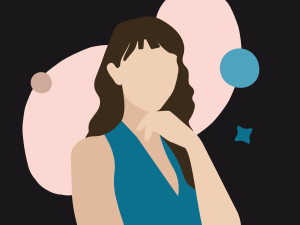
April 30, 2024
Author Ellyce Fulmore struggled with impulsive spending and doing “basic” daily tasks during the pandemic. The pain of coping with that led to her ADHD diagnosis.
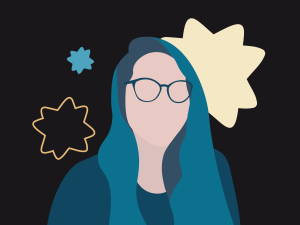
April 16, 2024
ADHD coach Jaye Lin was a gifted kid with undiagnosed ADHD. Now, she’s building communities and helping others cope with ADHD burnout.
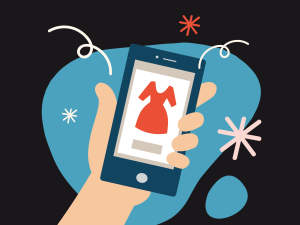
April 2, 2024
Writer Paulette Perhach had money coming in but struggled to keep it in her bank account. An ADHD diagnosis brought her struggles into perspective.
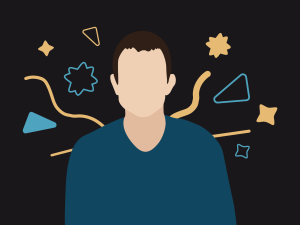
March 19, 2024
Eye to Eye founder David Flink is fighting the “just try harder” myth surrounding ADHD, dyslexia, and other learning and thinking differences.
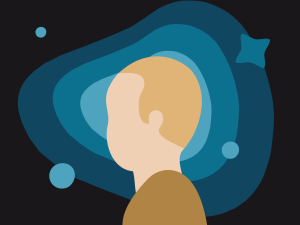
March 5, 2024
Peter Jones used to feel better saying he had a hearing problem rather than considering ADHD. Now, he knows he has ADHD and isn't afraid to say it.
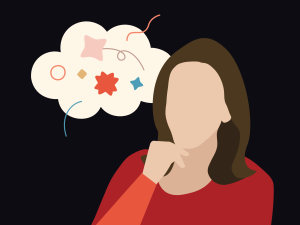
February 20, 2024
Before her ADHD diagnosis, ADHD coach Emily Weinberg thought she was just lazy. But in reality she was stuck in “analysis paralysis.”
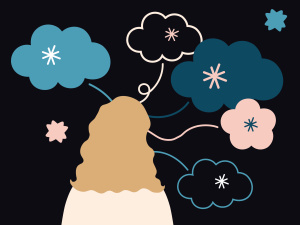
Carol Blumenstein was called an unteachable student. Now, she knows she has ADHD and dyslexia, and supports her five kids who learn differently, too.
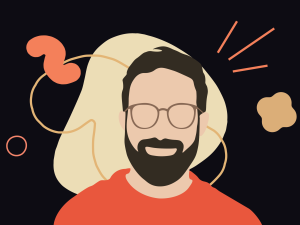
January 23, 2024
Executive coach, actor, and former criminal defense attorney Ernest Anemone shares his ADHD story — and why he questions the term “attention deficit.”
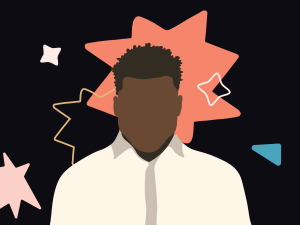
December 26, 2023
Livingston Steele was diagnosed with ADHD about a year into working at Understood.org. His experience and work have given him immense empathy for people with ADHD.
